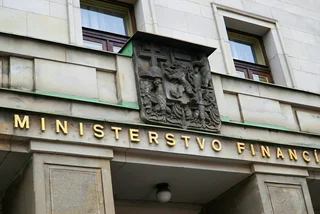Economic and social hardship now affects 1.4 million people in the Czech Republic, according to findings released by the Invisible project at a press conference on Tuesday. The report highlights a rising number of individuals left without access to state support or financial stability—nearly an eighth of the population.
Who is in hardship?
Those most affected include single parents, seniors, students from low-income families, workers in the informal economy, and experienced individuals over 50 who are unemployed. “The invisibles are actually increasing,” said Aleš Rod, executive director of the Center for Economic and Market Analysis, one of the project’s partners.
“The Czech Republic has failed to eliminate the causes of people becoming invisible,” he added.
Aging also plays a significant role. According to Jana Pikardová, manager of the Invisible project and spokesperson for Provident Financial, informal caregivers, seniors, social workers, and older unemployed adults are especially impacted.
How many are affected?
The number of seniors facing hardship has risen by 58,000 over five years, reaching 947,000. Low-income households, at just over 1 million, are the single most-represented category in the analysis, experiencing economic difficulty.
Additionally, the number of social workers in difficulty rose to 26,900, and the number of unemployed people over 50 in hardship increased by 33,400, now totaling 110,800.
Why this happens
Experts cited a combination of long-term structural problems and recent crises, including the Covid-19 pandemic, energy crisis, war, and inflation. These challenges have widened the gap for people already at a disadvantage. Many lack access to more favorable financial products or support systems.
How to get help
To address the growing issue, the Invisible project recommends several measures: supporting the employment of people over 50, expanding retraining programs, creating affordable community housing for seniors, and improving work conditions for social service workers.
Experts also urge tax relief for informal caregivers and closer cooperation among public institutions, private companies, and non-profit organizations.
“The situation is not only economic but also societal,” Rod warned. “If we do not work effectively with the invisibles, it may lead to political radicalization,” he added.
Is change on the way?
The Czech government is currently planning a major reform of its social benefits system, replacing four current benefits with a single "super benefit" to better support those in financial need.
According to Labor Minister Marian Jurečka, the new system will be simpler, fairer, and more accessible, especially for vulnerable groups. It includes higher support for the long-term unemployed who engage in at least 30 hours of public service, while discouraging benefit dependency among those unwilling to work or retrain.
The reform aims to reduce homelessness and improve housing support through a streamlined application process and a coordinated housing law, enhancing overall social safety.













 Reading time: 2 minutes
Reading time: 2 minutes 

























